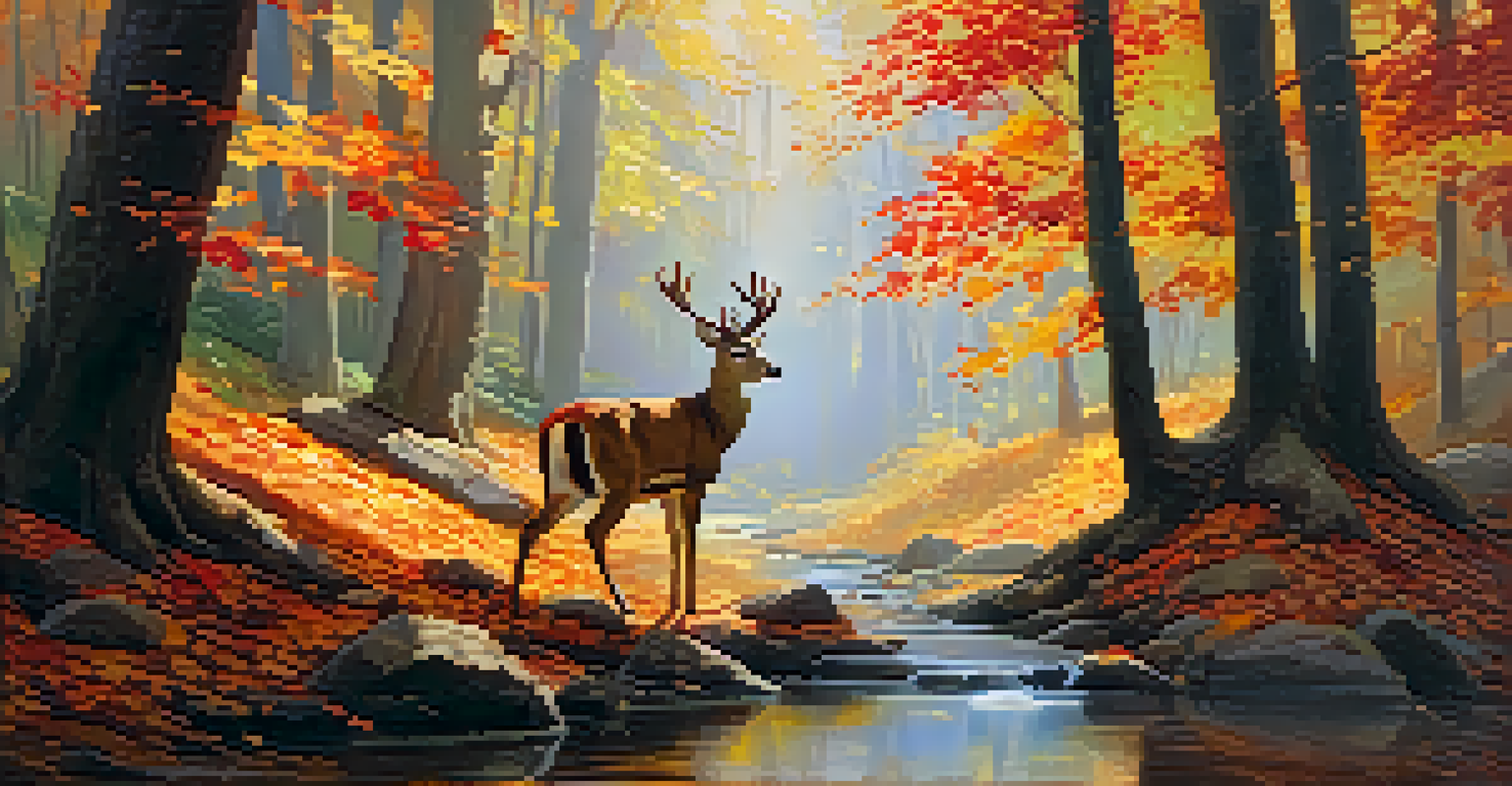Screenwriters and Genre: Crafting Unique Film Experiences

Understanding the Role of Genre in Screenwriting
Genres serve as a blueprint for storytelling, guiding screenwriters in their creative processes. They help define the tone, structure, and audience expectations of a film. For example, a horror film often relies on suspense and fear, while a romantic comedy focuses on humor and love.
Genres are a way to communicate with the audience what to expect, while also allowing writers to play within those boundaries to create something unique.
By understanding genre conventions, screenwriters can play with audience expectations. This allows for the creation of unique narratives that can surprise viewers. A classic example is the film 'Get Out', which blends horror with social commentary, breaking traditional genre boundaries.
Ultimately, genre is not just a label; it’s a tool for screenwriters to innovate and engage audiences. By mastering genre elements, they can craft stories that resonate deeply and leave lasting impressions.
The Importance of Theme within Genres
While genre sets the stage, themes enrich the narrative and give it depth. Themes are the underlying messages or ideas that a story conveys, such as love, sacrifice, or identity. For instance, in a sci-fi genre like 'Blade Runner', themes of humanity and technology intertwine to create a thought-provoking experience.

Screenwriters often weave themes into their scripts to provide substance beyond the surface plot. This can make a film not only entertaining but also thought-provoking. When themes resonate with the audience, they can spark discussions long after the credits roll.
Genres Guide Storytelling
Genres serve as a blueprint for screenwriters, shaping tone, structure, and audience expectations.
Therefore, a strong theme can elevate a genre piece from mere entertainment to a reflective exploration of societal issues, enhancing the overall impact of the film.
Subverting Genre Expectations for Impact
Subverting genre expectations is a powerful tool for screenwriters aiming to create memorable films. By flipping familiar tropes on their heads, they can surprise audiences and generate fresh experiences. A great example is 'The Cabin in the Woods', which plays with horror clichés while delivering a unique twist.
The best stories reflect the complexities of life, often blending genres to capture the essence of the human experience.
This technique not only engages viewers but also encourages them to think critically about the genre itself. When audiences recognize the subversion, it can lead to a deeper appreciation of the film's craft. Ultimately, this approach invites audiences to break free from traditional viewing patterns.
In doing so, screenwriters can create a dialogue with their audience about the conventions of the genre, fostering a more interactive and thoughtful viewing experience.
Blending Genres for Innovative Storytelling
Blending genres allows screenwriters to explore creative storytelling by combining elements from different genres. This fusion can lead to innovative narratives that captivate a diverse audience. For example, 'The Shape of Water' merges fantasy and romance, captivating viewers with its unique premise.
When genres are blended thoughtfully, the result can be a rich tapestry of storytelling that appeals to various tastes. Screenwriters must be adept at balancing the elements of each genre to maintain coherence within the narrative. This careful crafting can result in films that feel both fresh and familiar.
Themes Add Depth to Stories
Themes enrich narratives, providing underlying messages that resonate with audiences beyond mere entertainment.
Ultimately, genre blending challenges traditional storytelling norms, inviting audiences to experience films in entirely new ways.
Character Development Across Different Genres
Character development is crucial in any genre, as it drives the emotional connection between the audience and the story. In genres like drama, characters often undergo significant growth, while in action films, they may embody archetypes. A well-developed character can resonate with audiences, making the story more impactful.
Screenwriters must understand how different genres influence character arcs. For instance, a horror film might depict characters facing their fears, while a romantic comedy may focus on personal growth through relationships. Crafting relatable characters allows the audience to engage more deeply with the narrative.
By prioritizing character development, screenwriters can create compelling stories that resonate across genres, enhancing the overall viewing experience.
The Evolution of Genres in Film History
Genres have evolved significantly throughout film history, influenced by cultural shifts and technological advancements. Early films were often simplistic, but as storytelling techniques advanced, genres became more complex. The evolution of genres reflects societal changes, such as the rise of feminism in film leading to more diverse representations.
Screenwriters play a pivotal role in this evolution by pushing boundaries and experimenting with genre conventions. By embracing change, they can create films that not only entertain but also reflect the times. This evolution keeps cinema fresh and relevant for new generations of audiences.
Future of Genres is Dynamic
The future of screenwriting will be marked by innovation and genre blending, reflecting the diverse experiences of modern society.
Understanding the history of genres can inspire screenwriters to innovate while respecting the roots of storytelling. This balance of tradition and innovation can lead to the creation of timeless films.
The Future of Screenwriting and Genre Innovation
As audiences become more sophisticated, the future of screenwriting lies in innovation and experimentation with genres. Emerging technologies, like virtual reality and interactive storytelling, open new doors for creative expression. Screenwriters will need to adapt and explore these mediums to captivate modern audiences.
Additionally, the blending of genres is likely to continue, as filmmakers seek to push boundaries and challenge expectations. This evolution could lead to the emergence of entirely new genres, reflecting the diverse experiences of contemporary society. Screenwriters will be at the forefront of this transformation.

Ultimately, the future of screenwriting is bright, with endless possibilities for creative exploration. By remaining open to change and embracing innovation, screenwriters can craft unique film experiences that resonate with audiences for years to come.